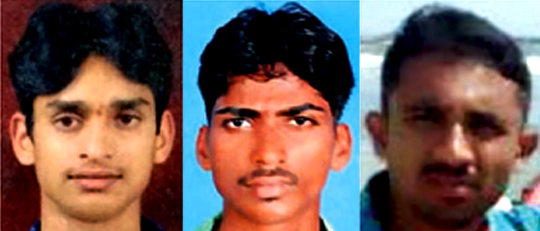Bengaluru, Jul 4: Karnataka on Saturday reported its biggest single day spike of 1,839 new COVID-19 cases and 42 related fatalities, taking the total number of infections in the state to 21,549 and the death count to 335, the Health department said.
The day also saw 439 patients getting discharged after recovery; even as 226 patients in the state were undergoing treatment in ICU.
Out of 1,839 fresh cases reported on Saturday, a whopping 1,172 cases were from Bengaluru Urban alone; while 24 of the 42 deaths were from the capital city.
The previous biggest single day spike was recorded on July 3 with 1,694 cases.
As of July 4 evening, cumulatively 21,549 COVID-19 positive cases have been confirmed in the state, which includes 335 deaths and 9,244 discharges, the Health department said in its bulletin.
It said, out of 11,966 active cases, 11,740 patients are in isolation at designated hospitals and are stable, while 226 are in ICU.
Among the 42 dead are six from Bidar, four from Dakshina Kannada, three each from Kalaburagi and Dharwad and one each from Hassan and Bengaluru rural.
Of the 42, twenty-six are men, the bulletin said, adding most of them were with a history of Severe Acute Respiratory Infection (SARI), Influenza-like illness (ILI).
Out of 1,839 cases tested positive today, contacts of the majority of the cases are still under tracing.
Among the districts where the new cases were reported, Bengaluru Urban accounted for 1,172 cases, followed by Dakshina Kannada (75), Ballari (73), Bidar (51), Dharwad (45), Raichur (41), Mysuru (38), thirty seven each from Kalaburagi and Vijayapura, thirty-five each from Mandya and Uttara Kannada.
Bengaluru Urban district tops the list of positive cases, with a total of 8,345 infections, followed by Kalaburagi 1,597 and Udupi 1,276.
Among discharges, Kalaburagi tops the list with 1,189 followed by Udupi (1,103) and Bengaluru Urban (965).
A total of 6,89,526 samples were tested so far, of which 17,592 were tested on Saturday alone.
So far 6,50,876 samples have been reported as negative, and of them 15,294 were reported negative today.






Comments
It requires broadening of road system around....same narrow roads but more and more vehicles added in to it....every other day we hear one or other kind of accidents....
Tax payers money going in to the hands of corrupt politicians...not reaching to road broadening work at all....
what i m hearing now a days, in 1 week this the third news i m hearing of the accident.
many Youths lost their life by this kind of long drives.
Really tragic, RIP
my heartfelt condolences to the family,
Add new comment